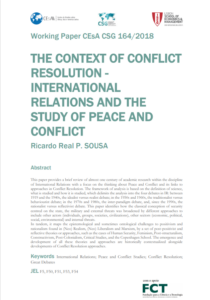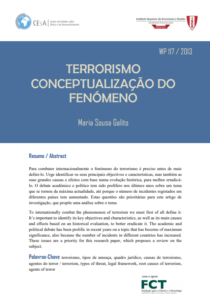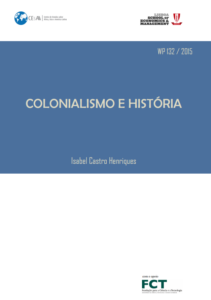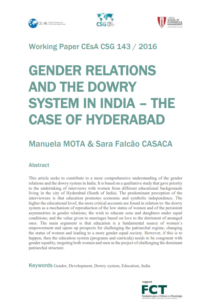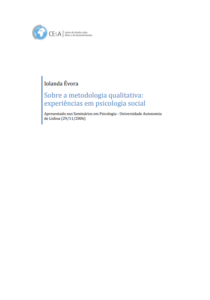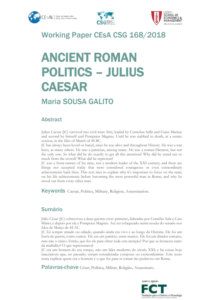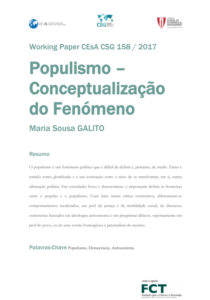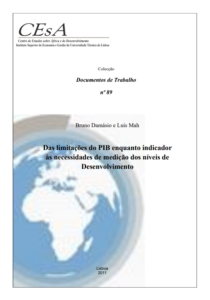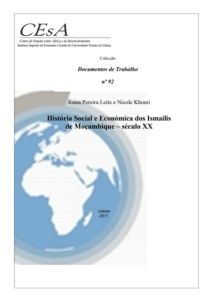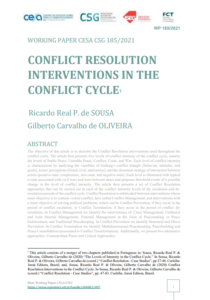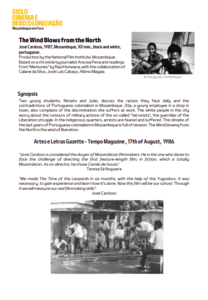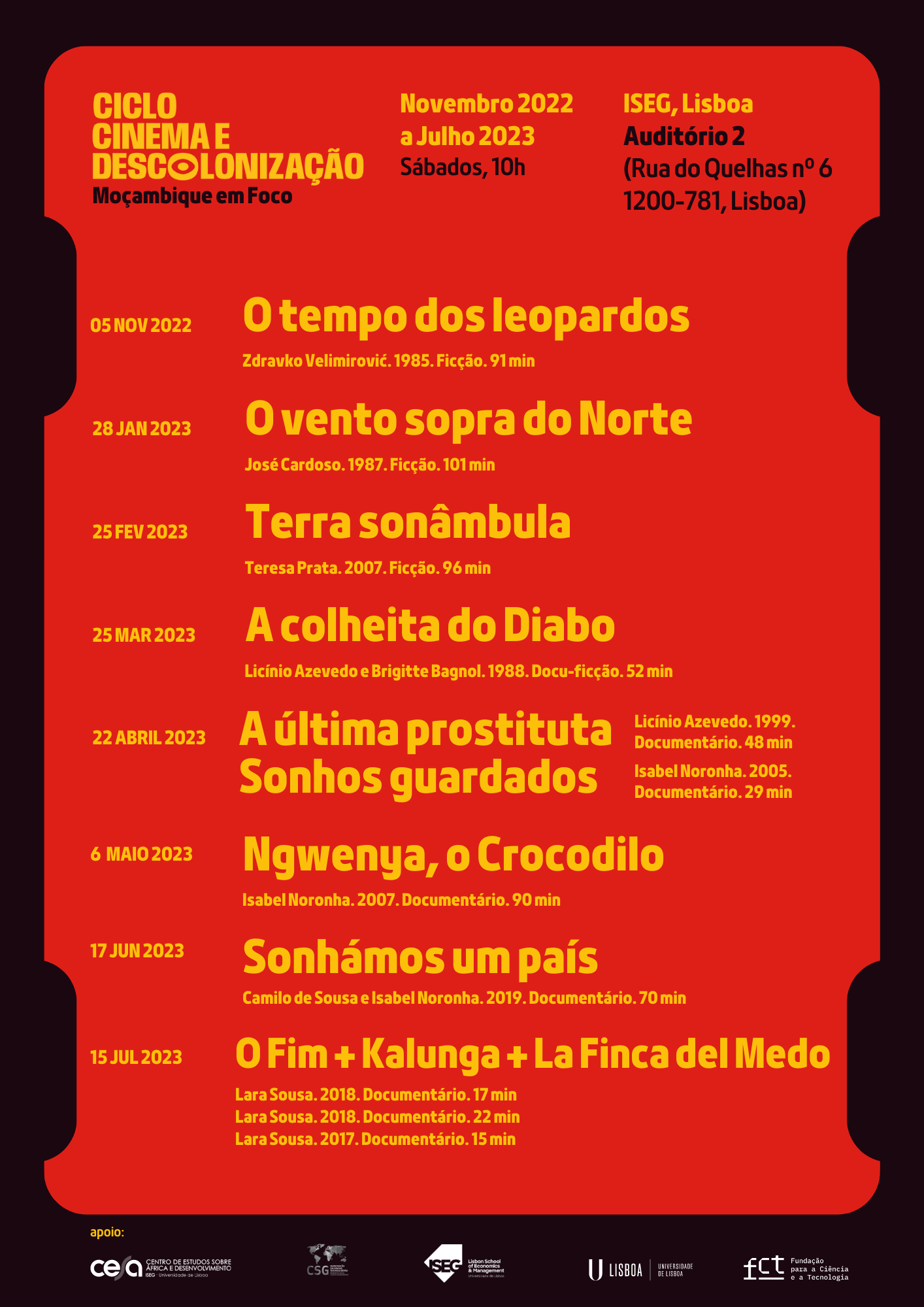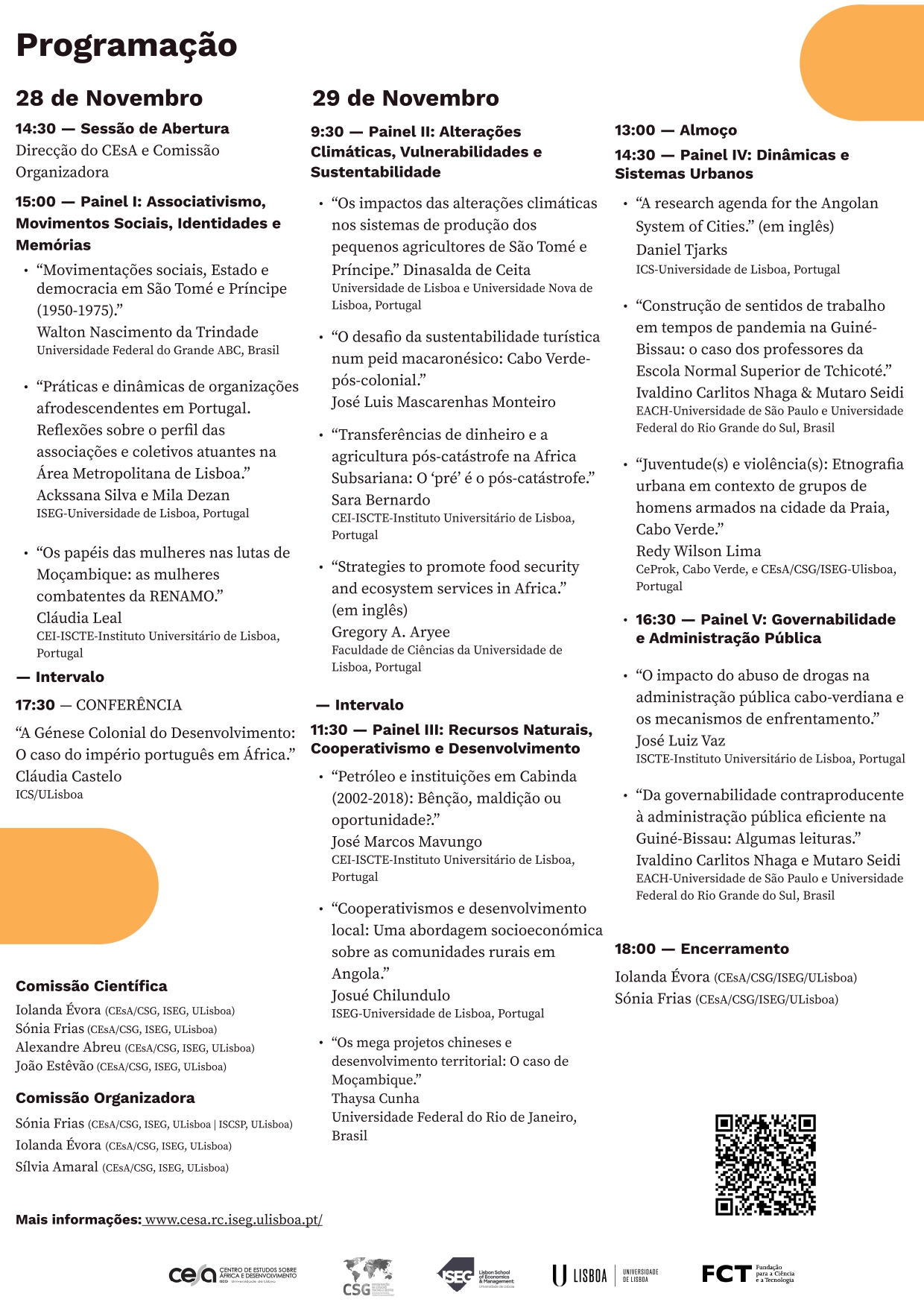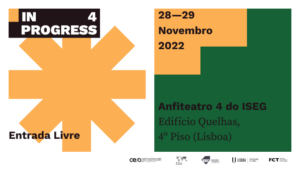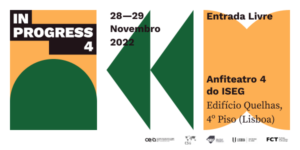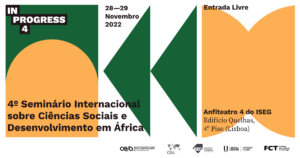CESA
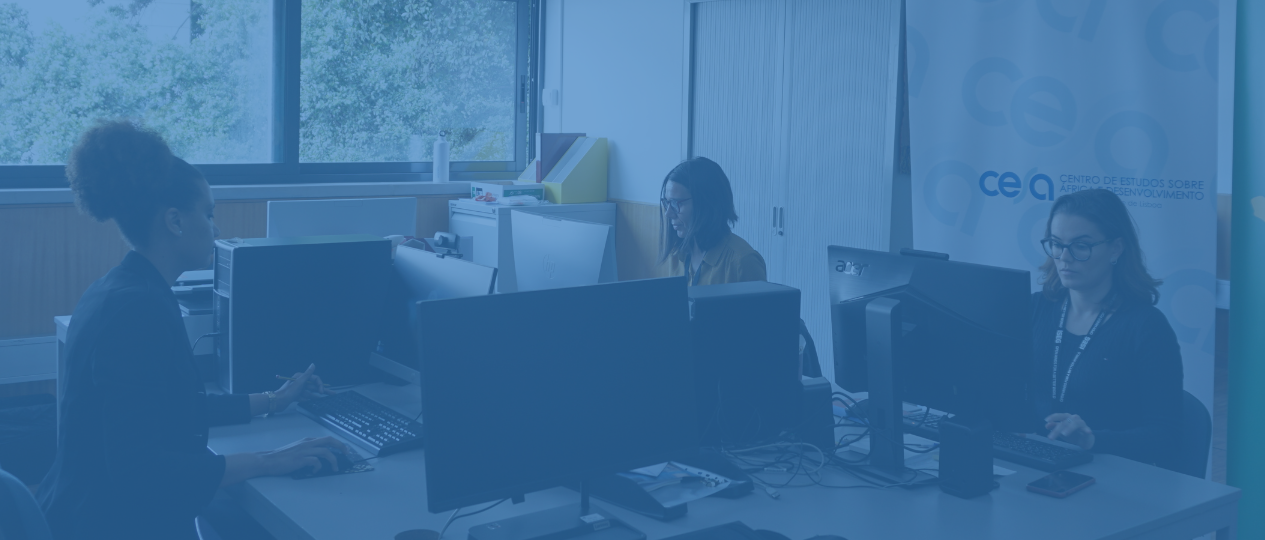
Reading tips: Check out CEsA’s most read publications in 2022
The Centre for African and Development Studies (CEsA) invites all readers of the Center’s scientific production and interested in development studies and topics related to Africa to explore our reading tips! Check out our 10 most read publications in 2022:
2º – WP nº 117/2013: Terrorismo: conceptualização do fenómeno (Galito, Maria Sousa)
3º – WP nº 132/2015: Colonialismo e história (Henriques, Isabel Castro)
5º – Sobre a metodologia qualitativa: experiências em psicologia social (Évora, Iolanda)
6º – WP nº 168/2018: Ancient roman politics – Julius Caesar (Galito, Maria Sousa)
7º – WP nº 158/2017: Populismo: conceptualização do fenómeno (Galito, Maria Sousa)
The Reading Tips are a sporadic feature of CEsA. CEsA neither confirms nor infirms opinions and conclusions drawn in publications. Any opinions and conclusions are the sole responsibility of the researchers and authors of the articles.
Author: CEsA Communication (comunicacao@cesa.iseg.ulisboa.pt)
Image: CEsA/Reproduction
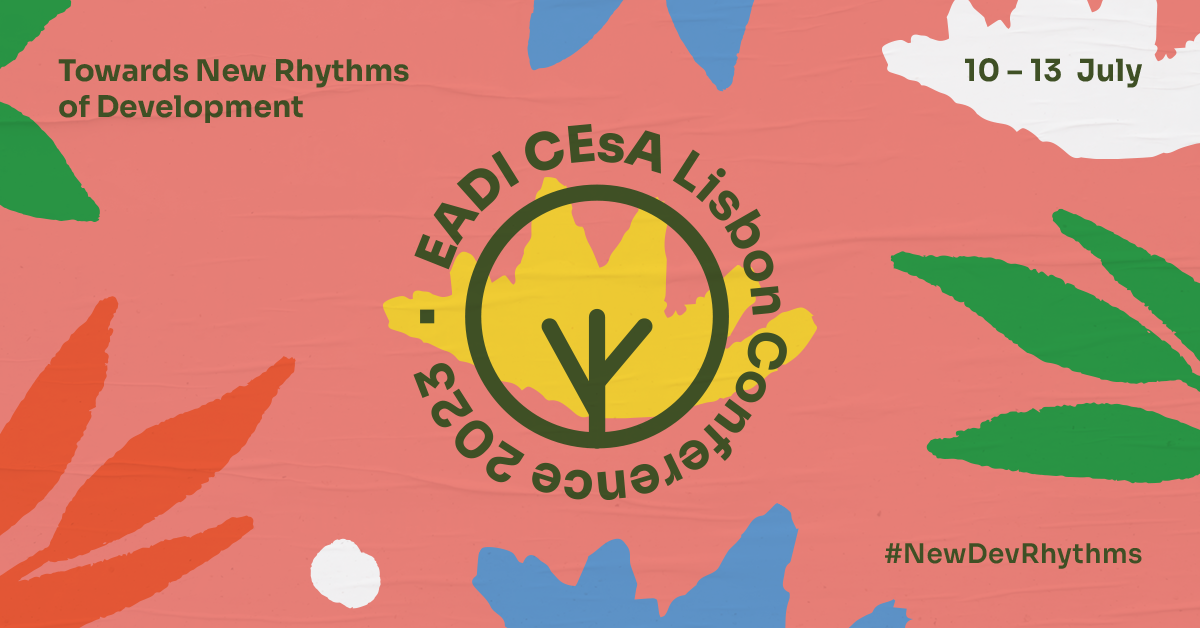
EADI CEsA Lisbon Conference 2023 opens Call for Abstracts up until December 18th, 2022

The “EADI CEsA Lisbon Conference 2023: Towards New Rhythms of Development”, an international conference on the new rhythms of development, organized by the European Association of Development Research and Training Institutes (EADI) in partnership with the Centre for African and Development Studies (CEsA) and the Lisbon School of Economics and Management (ISEG), opened a Call for Abstracts with deadline until December 18th, 2022.
Selected abstracts will be presented in one of the two types of sessions of the event, Seed Panels or Harvest Panels.
The Seed Panels will receive proposals for work in progress and/or innovative ideas, which do not require the submission of a full paper. Researchers may choose to submit a project that fits into one of the 38 themes available (check the list of themes here). Constructive feedback to applicants is expected after the paper submission as well as during the session. Click here for more information about the Seed Panels.
Harvest Panels will receive proposals for completed investigations and the results of investigations, and submission of full papers may be mandatory. Researchers should be prepared to provide appropriate comments on submitted papers if required by the organisation and should choose to submit a paper that fits one of the 17 themes available (check the list of themes here). It is expected to explore the possibilities of publishing the contributions during the session. Click here for more information about the Harvest Panels (English only).
Abstracts should be submitted through EADI’s paper management system, Conftool (click here to access).
For more information about the Call for Abstracts, click here.
The EADI CEsA Lisbon Conference 2023 will take place from 10 to 13 July 2023 at ISEG, Lisbon.
Author: CEsA Communication (comunicacao@cesa.iseg.ulisboa.pt) with information from EADI
Image: CEsA/EADI/Reproduction
Partner in the organisation of the event:
Support:
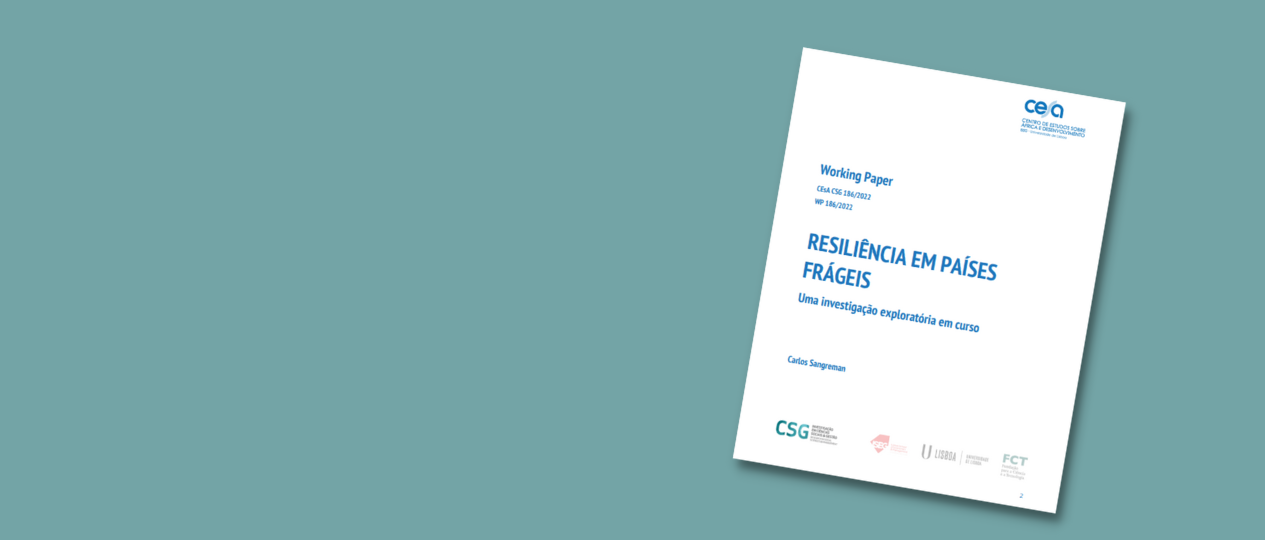
CEsA Working Paper 187/2022 explores the resilience of fragile states
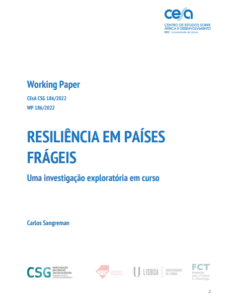
CEsA has published the Working Paper “Resiliência em Países Frágeis: uma investigação exploratória em curso” (n. 187/2022), authored by Carlos Sangreman with Deolinda Martins, Christophe Quétel, Alexandre Abreu and Guy Bourdin.
The publication explores resilience in Guinea-Bissau based on the study “Context specific risk perception and resilience patterns for individuals and communities (urban/non-urban) – the case of people in Guinea-Bissau”, which applied a survey whose form is present in this Working Paper. This study resulted in an article published in an international journal and a PhD study in progress at the University of Aveiro.
Click here to download the Working Paper n. 187/2022: https://www.repository.utl.pt/handle/10400.5/26355
Resiliência em Países Frágeis: uma investigação exploratória em curso started in 2017 when the director of a service directorate of the Joint Research Center, at ECAS in Geneva, invited Prof. Carlos Sangreman to an exploratory study on resilience in Guinea-Bissau with the title Context specific risk perception and resilience patterns for individuals and communities (urban/non-urban) – the case of people in Guinea-Bissau. The study was carried out on the basis of the survey whose form is included in this Working Paper, gave rise to the attached article in an international journal and to a PhD thesis in progress at the University of Aveiro. The partnership between JRC and Cesa also involved Professor Alexandre Abreu and Master Jessica Santos, as well as Carlos Sangreman. From the JRC were Chistophe Quétel, Guy Bourdin and Ilektra Lemi. A survey was conducted in all regions and capital of the country to 210 households, with a previous pilot to 36 to refine the questionnaire in this partnership: project Enquêtes de terrain sur la perception du risque et la résilience des ménages en Guinée-Bissau Projet: Ares(2018)2381703 – 04/05/2018. Centre Commun de Recherche (JRC) de la Commission Européenne, Direction E, and CESA – Centre for Studies on Africa and Development of the University of Lisbon.
Author: CEsA Communication (comunicacao@cesa.iseg.ulisboa.pt)
Image: CEsA/Reproduction
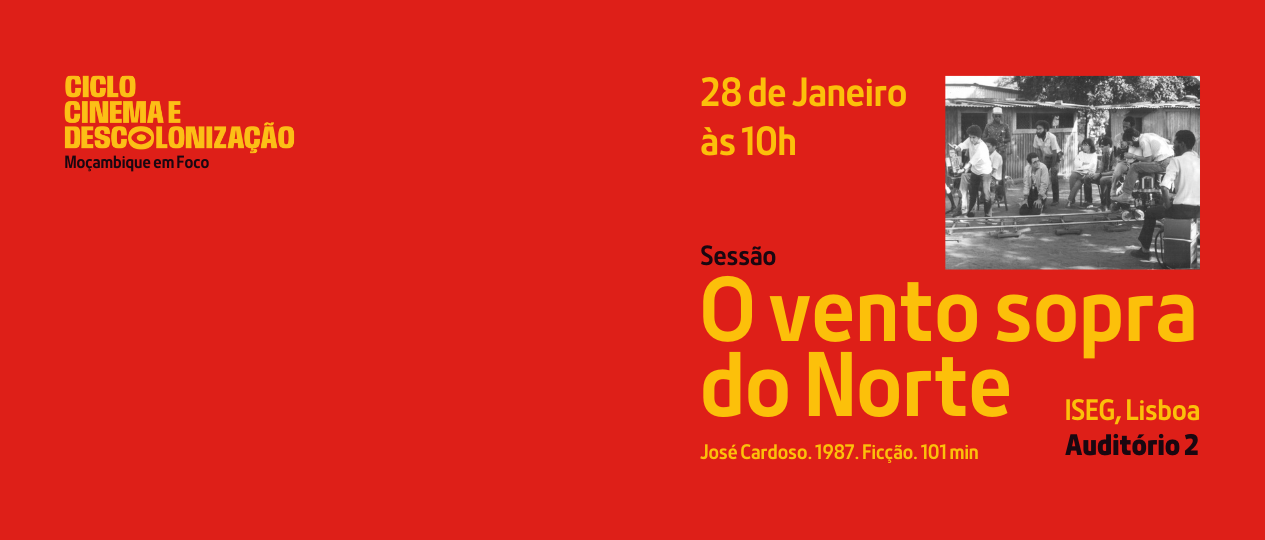
CEsA will screen one of the first post-independence Mozambican films, “O vento sopra do Norte”, on January 28
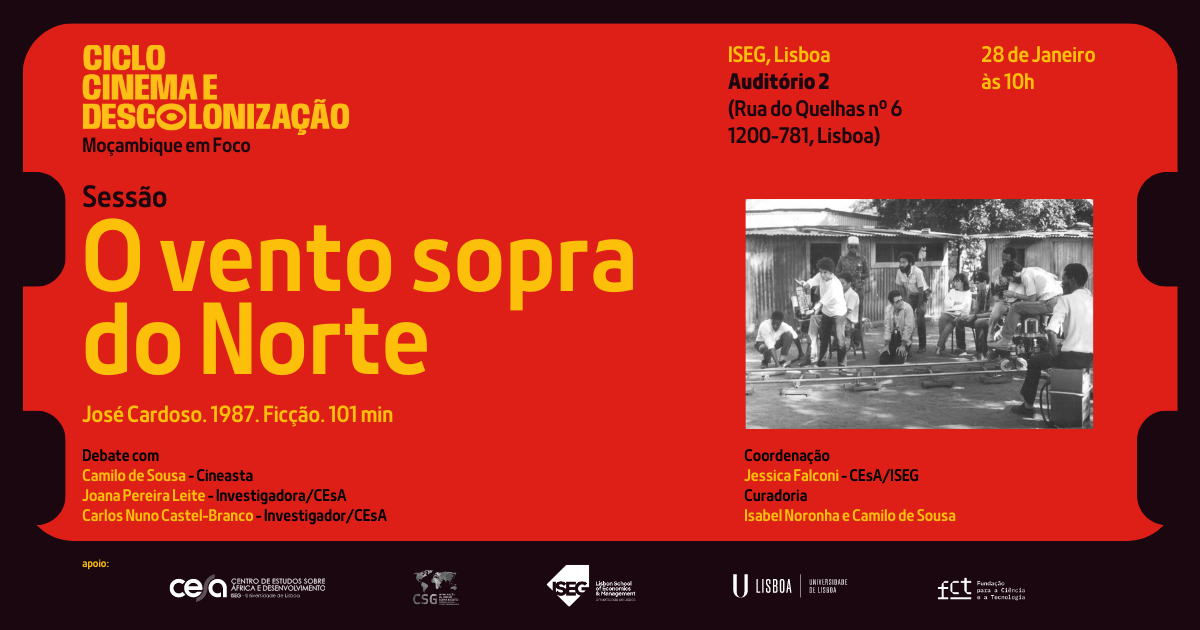
The Centre for African and Development Studies (CEsA/CSG/ISEG/ULisboa) is pleased to announce the screening of one of the first incursions of the post-independence Mozambican film production, “O vento sopra do Norte” (José Cardoso, 1987 , Fiction, 101 min). The session is free admission and will take place on January 28, 2023, at 10 am, at ISEG – Lisbon School of Economics and Management (Auditorium 2, Rua do Quelhas n. 6, 1200-781, Lisbon, Portugal).
The debate will follow with Mozambican filmmaker Camilo de Sousa and CEsA researchers Joana Pereira Leite and Carlos Nuno Castel-Branco.
The film will be played in Portuguese. There is no pre-registration. The capacity of the auditorium is in order of arrival.
Synopsis for “O vento sopra do Norte”
Two young students, Renato and João, discuss the racism they face daily and the contradictions of Portuguese colonialism in Mozambique. Zita, a young employee at a store in the city, also complains about the discrimination she suffers at work. The whites in the city are concerned about the rumors about the military actions of the so-called “terrorists”, the guerrillas of the Liberation struggle. In indigenous neighborhoods, arrests are feared and suffered. The climate of the last years of Portuguese colonialism in Mozambique is full of tensions. The Wind blows from the North is the wind of liberation.
Click on the imagem below to access the film sheet:
About the Cycle “Cinema e Descolonização: Moçambique em foco”
The project urges to understand decolonization as a process still in progress, which must be accepted and integrated into the social, political, cultural and personal dynamics. The project aims to create an open and dynamic space for sharing, where memories, narratives, dialogues and reflections can emerge. It is coordinated by Jessica Falconi (CEsA/CSG/ISEG/ULisboa) and curated by the Mozambican filmmakers Isabel Noronha and Camilo de Sousa.
The film club will take place from January to July 2023, with screenings once a month, always on Saturdays, where it is intended to debate and reflect on the legacies and memories of decolonization in Mozambique. Each session will have the spoken remarks of producers, directors, etc., as well as moderators and debaters who will facilitate the debate within the audience.
Coordination: Jessica Falconi (CEsA/CSG/ISEG/ULisboa)
Curators: Isabel Noronha and Camilo de Sousa
Scientific consultancy: Joana Pereira Leite (CEsA/CSG/ISEG/ULisboa) and Ana Mafalda Leite (CEsA/CSG/ISEG/ULisboa)
Support: CEsA/CSG/ISEG/ULisboa
Check the full program for 2023 of the film club “Cinema e Descolonização: Moçambique em foco”
Author: CEsA Communication (comunicacao@cesa.iseg.ulisboa.pt)
Image: CEsA/Reproduction

Check the full program for 2023 of the film club “Cinema e Descolonização: Moçambique em foco”
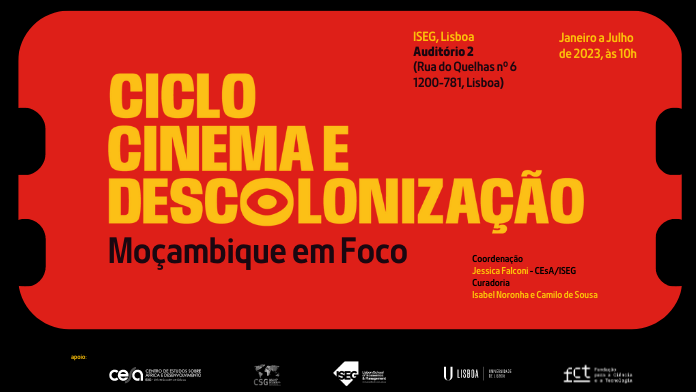
The Centre for African and Development Studies (CEsA/CSG/ISEG/ULisboa) is pleased to announce the full program of film screenings for 2023 of the film club “Cinema e Descolonização: Moçambique em foco”. The screenings will take place once a month, always on Saturdays, at 10 am, at ISEG – Lisbon School of Economics and Management/ULisboa (Auditorium 2, Rua do Quelhas n. 6, 1200-781, Lisbon, Portugal).
The film club will take place from January to July 2023, where it is intended to debate and reflect on the legacies and memories of decolonization in Mozambique. Each session will have the spoken remarks of producers, directors, etc., as well as moderators and debaters who will facilitate the debate within the audience.
About the Cycle “Cinema e Descolonização: Moçambique em foco”
The project urges to understand decolonization as a process still in progress, which must be accepted and integrated into the social, political, cultural and personal dynamics. The project aims to create an open and dynamic space for sharing, where memories, narratives, dialogues and reflections can emerge. It is coordinated by Jessica Falconi (CEsA/CSG/ISEG/ULisboa) and curated by the Mozambican filmmakers Isabel Noronha and Camilo de Sousa.
Coordination: Jessica Falconi (CEsA/CSG/ISEG/ULisboa)
Curators: Isabel Noronha and Camilo de Sousa
Scientific consultancy: Joana Pereira Leite (CEsA/CSG/ISEG/ULisboa) and Ana Mafalda Leite (CEsA/CSG/ISEG/ULisboa)
Support: CEsA/CSG/ISEG/ULisboa
Check the full program for 2023 (click on the image below to download it)
CEsA launches the film club “Cinema e Descolonização: Moçambique em foco”
Author: CEsA Communication (comunicacao@cesa.iseg.ulisboa.pt)
Image: CEsA/Reproduction
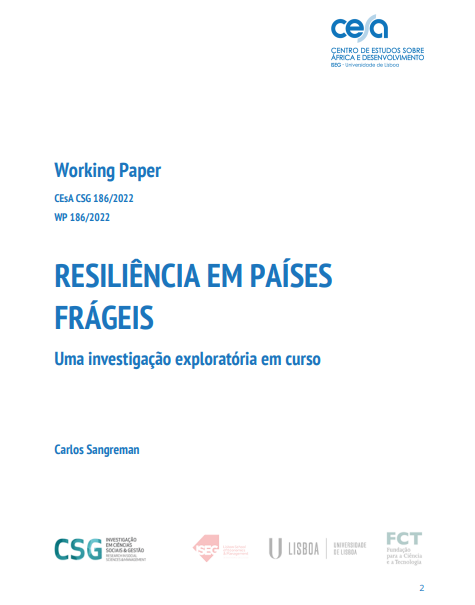
Working Paper 187/2022: Resiliência em Países Frágeis – uma investigação exploratória em curso
Abstract:
Resiliência em Países Frágeis – uma investigação exploratória em curso started in 2017 when the director of a service directorate of the Joint Research Center, at ECAS in Geneva, invited Prof. Carlos Sangreman to an exploratory study on resilience in Guinea-Bissau with the title Context specific risk perception and resilience patterns for individuals and communities (urban/non-urban) – the case of people in Guinea-Bissau. The study was carried out on the basis of the survey whose form is included in this Working Paper, gave rise to the attached article in an international journal and to a PhD thesis in progress at the University of Aveiro. The partnership between JRC and Cesa also involved Professor Alexandre Abreu and Master Jessica Santos, as well as Carlos Sangreman. From the JRC were Chistophe Quétel, Guy Bourdin and Ilektra Lemi. A survey was conducted in all regions and capital of the country to 210 households, with a previous pilot to 36 to refine the questionnaire in this partnership: project Enquêtes de terrain sur la perception du risque et la résilience des ménages en Guinée-Bissau Projet: Ares(2018)2381703 – 04/05/2018. Centre Commun de Recherche (JRC) de la Commission Européenne, Direction E, and CESA – Centre for Studies on Africa and Development of the University of Lisbon.
Quotation:
Sangreman, C., Martins, D., Quetel, C. Abreu, A. e Bourdin, G. (2022). “Resiliência em Países Frágeis – uma investigação exploratória em curso”. CEsA/CSG/ISEG/ULisboa – Documentos de Trabalho nº 186/2022
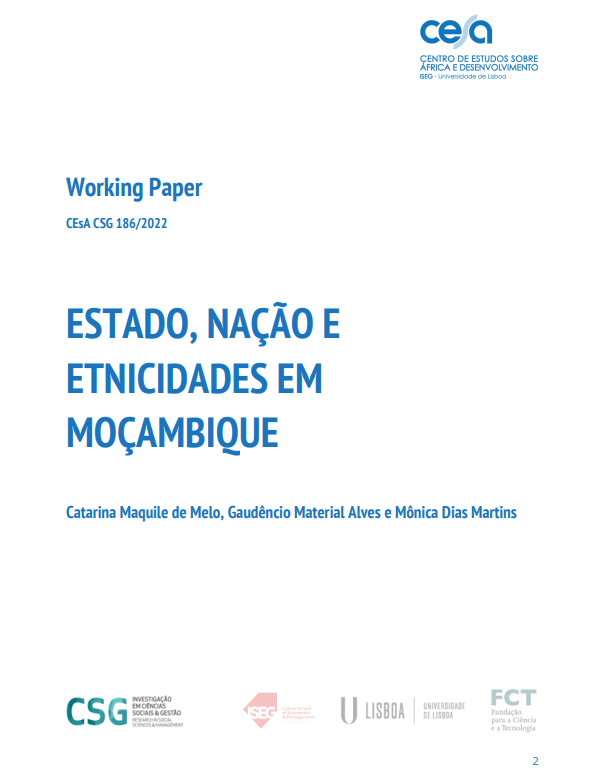
Working Paper 186/2022: Estado, Nação e Etnicidades em Moçambique
Abstract:
The processes of state and nation building begin soon after independence and establish a link between them, although each has its own logic. While the nation refers to collective identity, the State refers to the existence of a central-level political authority, respected throughout the territory. As evidenced during the text, a significant part of the State structure that emerged after national independence was the result of the Portuguese colonial legacy, idealized by FRELIMO’s ruling elite and implemented as a project of formation of the “New Man”, which occurred in an imperative way and through uniformizing policies. Estado, Nação e Etnicidades em Moçambique analyses the process of State and Nation building in Mozambique, whose population is characterised by a diversity of ethnicities. The first section presents a reflection on the foundations, the main actors and the actions towards the formation of the nation-state. In the second, we discuss the relationship between nationalism and socialist ideology, the latter interpreted in the post-independence period as the only path that would lead to development and to a society free from exploitation. With the 1990 constitution, a new order of political and economic liberalisation came into force. We seek to critically examine the political process underway in the country, in defiance of the dominant conceptions in the media, government, business and academic circles. To this end, we rely on bibliographic research and official documents, in addition to the experiences of two scholars who develop work in Quelimane, capital of Zambézia province in central Mozambique.
Quotation:
De Melo, C. M., Material Alves, G. e Martins, M. D. (2022). “Estado, Nação e Etnicidades em Moçambique”. CEsA/CSG/ISEG/ULisboa – Documentos de Trabalho nº 186/2022

Next session of CEsA Thinks 2022/2023 will address cost of drug addiction by youth in Nigeria
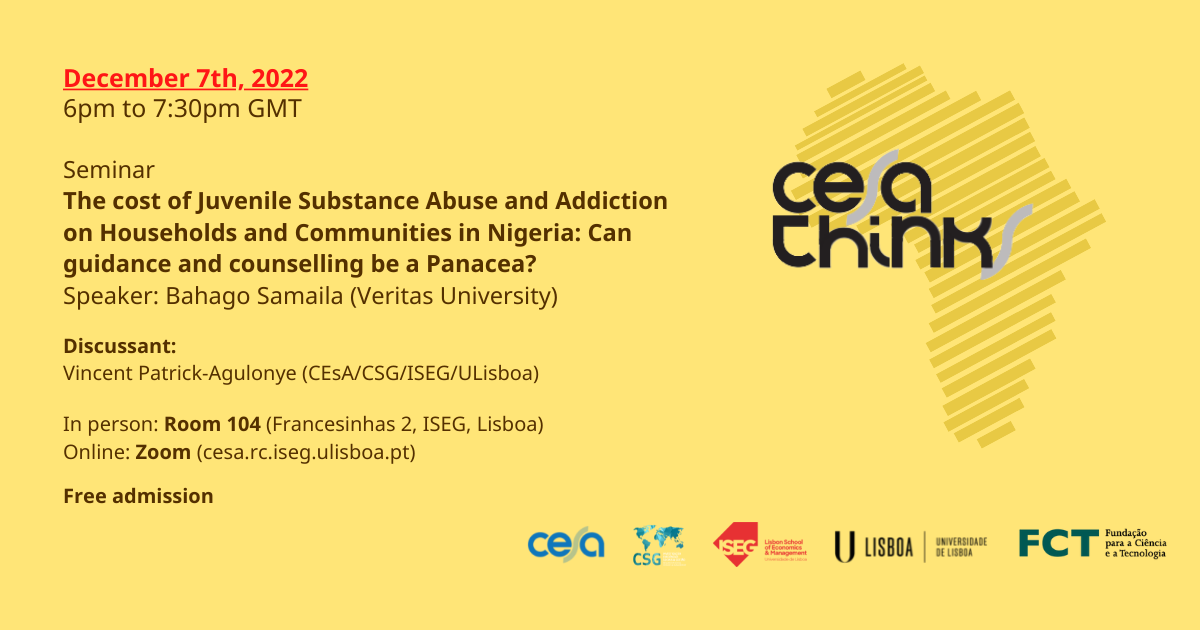
Centre for African and Development Studies (CEsA/CSG/ISEG/ULisboa) and ISEG – Lisbon School of Economics and Management, of the University of Lisbon (ULisboa), invite you to the next session of the CEsA Thinks 2022/2023 – Seminars: “The Cost of Juvenile Substance Abuse and Addiction on Households and Communities in Nigeria: Can guidance and counseling be a panacea?”. The study will be presented by Bahago Samaila (Veritas University) and the debate will be led by Vincent Agulonye (CEsA/CSG/ISEG/ULisboa).
The session is open to the public and will take place on December 7, 2022, at 6 pm (Lisbon time), at ISEG (Room 104, Francesinhas 2), in Lisbon, and online via Zoom (access here: https://us06web.zoom.us/j/87919779125?pwd=cmtENi9lVWxRNjBCdHhXaDdCZ0lHUT09).
About the speaker
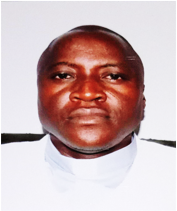 Bahago Samaila is a Lecturer in the Department of Educational Foundations at Veritas University. He holds a PhD and Masters in Guidance and Counseling from the University of Abuja. He holds a postgraduate degree in Education from Ahmadu Bello University Zaria Kaduna State and a BA in Theology from the University of Jos.
Bahago Samaila is a Lecturer in the Department of Educational Foundations at Veritas University. He holds a PhD and Masters in Guidance and Counseling from the University of Abuja. He holds a postgraduate degree in Education from Ahmadu Bello University Zaria Kaduna State and a BA in Theology from the University of Jos.
About the discussant
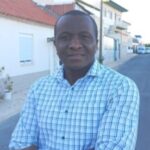 Vincent Angulonye is a CEsA researcher (CSG/ISEG/ULisboa). He holds a PhD in Development Studies from ISEG, University of Lisbon.
Vincent Angulonye is a CEsA researcher (CSG/ISEG/ULisboa). He holds a PhD in Development Studies from ISEG, University of Lisbon.
CEsA Thinks 2022/2023
The presentations aim to promote peer discussions on current research conducted by researchers in the field of Development, with the aim of generating contributions and criticism of the works presented. Organized by the CEsA researchers Vincent Agulonye and Daniel Adayi, the CEsA Thinks 2022 presentations are in English.
Next CEsA Thinks’ session: “The Cost of Juvenile Substance Abuse and Addiction on Households and Communities in Nigeria: Can guidance and counseling be a panacea?”
December 7, 2022
From 6pm to 7:30pm (Lisbon time)
Face-to-face in Room 104 (Francesinhas 2, ISEG, Lisbon), with online broadcast via Zoom (https://us06web.zoom.us/j/87919779125?pwd=cmtENi9lVWxRNjBCdHhXaDdCZ0lHUT09).
See the full program in the poster.
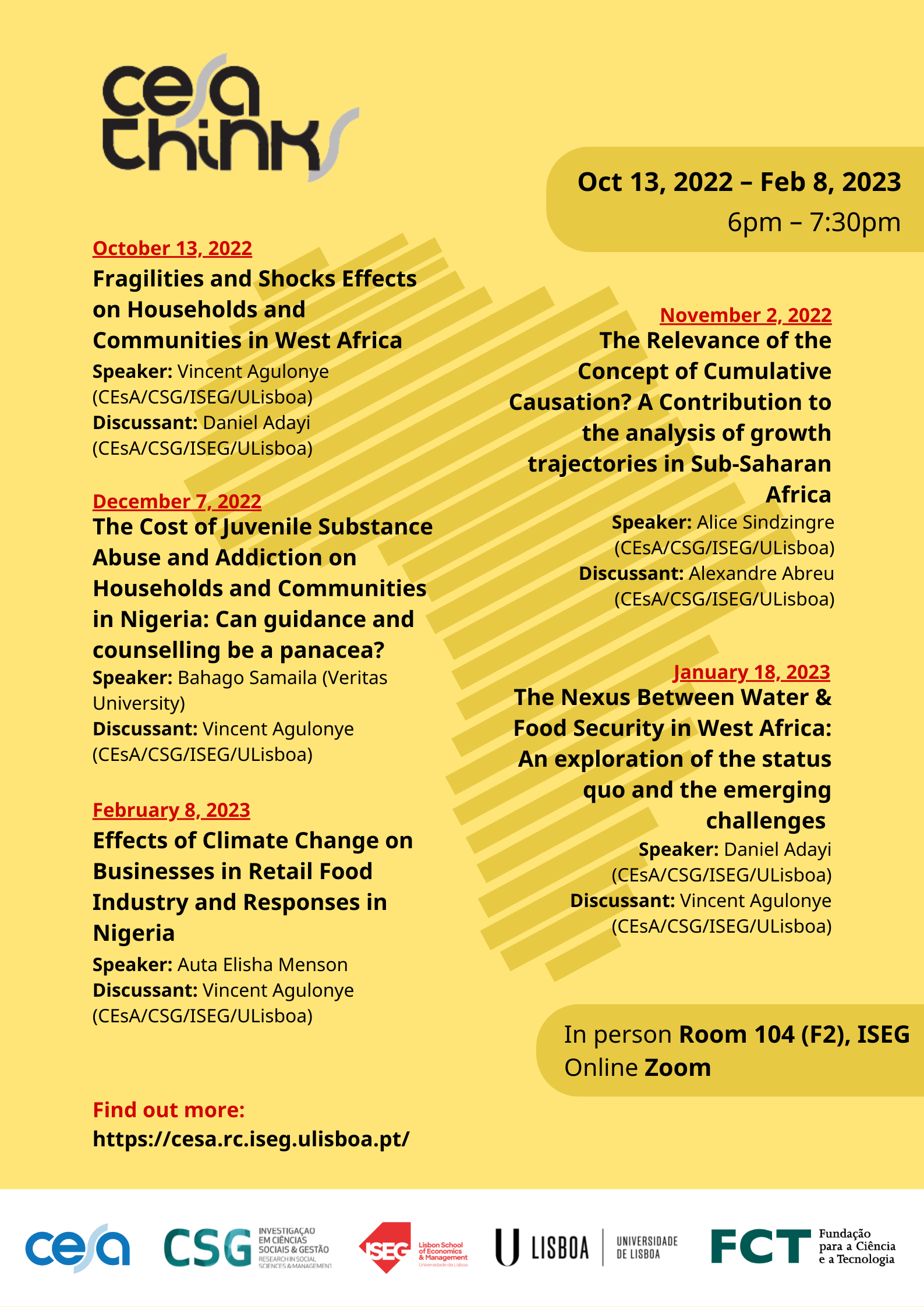
Author: CEsA Communication (comunicacao@cesa.iseg.ulisboa.pt)
Image: CEsA/Reproduction
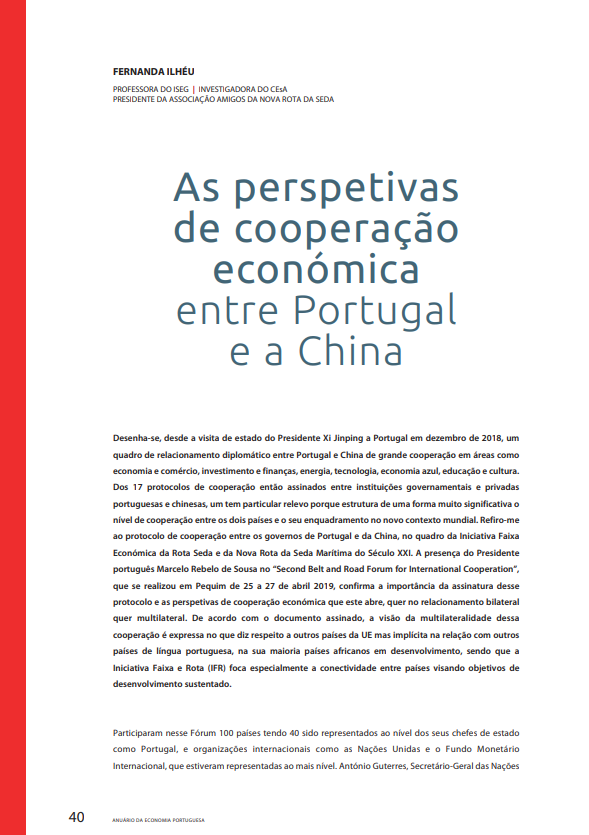
As Perspetivas de Cooperação Económica entre Portugal e a China
Abstract:
As Perspetivas de Cooperação Económica entre Portugal e a China exposes how Since the state visit of President Xi Jinping to Portugal in December 2018, a framework for diplomatic relations between Portugal and China has been established, with a high level of cooperation in areas such as economy and trade, investment and finance, energy, technology, blue economy, education and culture. Of the 17 cooperation protocols signed then between Portuguese and Chinese governmental and private institutions, one is of particular relevance because it structures in a very significant way the level of cooperation between the two countries and its framework in the new global context. I am referring to the cooperation protocol between the governments of Portugal and China, within the framework of the Silk Road Economic Belt Initiative and the New 21st Century Maritime Silk Road. The presence of Portuguese President Marcelo Rebelo de Sousa at the “Second Belt and Road Forum for International Cooperation”, which was held in Beijing from 25 to 27 April 2019, confirms the importance of the signing of this protocol and the prospects for economic cooperation that it opens, both in bilateral and multilateral relations. According to the signed document, the vision of the multilaterality of this cooperation is expressed with regard to other EU countries but implicit in the relationship with other Portuguese-speaking countries, mostly African developing countries, with the Belt and Road Initiative (IFR) focusing especially on connectivity between countries aimed at sustainable development objectives.
Quotation:
Fernanda Ilhéu (2019), As Perspetivas de Cooperação Económica entre Portugal e a China. O Economista-Anuário da Economia Portuguesa, 32ª Edição, Ordem dos Economistas, ISBN 1646-9909, pp:40-45, Lisboa.

International seminar In Progress 4, on social sciences and development in contemporary Africa, will take place on November 28 and 29 at ISEG
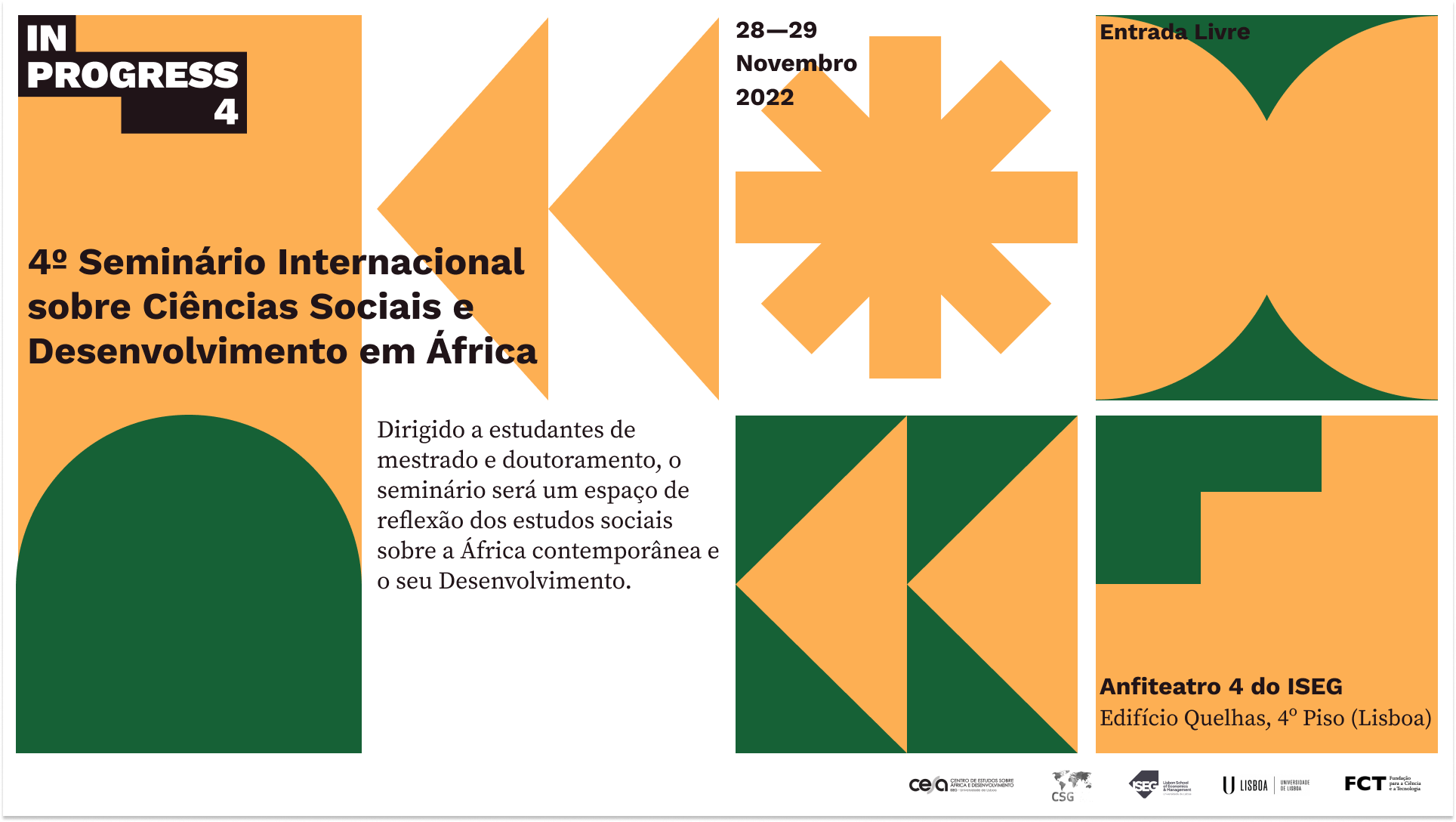
The Center for African and Development Studies (CEsA/CSG/ISEG/ULisboa) is pleased to announce the holding of In Progress 4 – “4º Seminário Internacional sobre Ciências Sociais e Desenvolvimento em África”, which will take place on the 28th and 29th of November, 2022 (2:30pm-7pm on 11/28 and 9:30am-7pm on 11/29), at ISEG -Lisbon School of Economics and Management (Rua do Quelhas 6, 4th floor, Amphitheater 4), in Lisbon, Portugal.
The event is in person and admission is free upon pre-registration (click here)
About In Progress 4
In Progress 4 – “4º Seminário Internacional sobre Ciências Sociais e Desenvolvimento em África” is aimed at masters and doctoral students and proposes a space for reflection on social studies on contemporary Africa and its development. Another objective is to identify which thematic areas, which at the present, have aroused more interest to researchers, in order to be able to retain the real dimension of knowledge, in the various domains and subjects.
Scientific Committee: Iolanda Évora (CEsA/CSG/ISEG/ULisboa), João Estêvão (CEsA/CSG/ISEG/ULisboa), Sónia Frias (CEsA/CSG/ISEG/ULisboa) and Alexandre Abreu (CEsA/CSG/ISEG/ULisboa) .
Organizing Committee: Iolanda Évora (CEsA/CSG/ISEG/ULisboa), Sónia Frias (CEsA/CSG/ISEG/ULisboa) and Sílvia Amaral (CEsA/CSG/ISEG/ULisboa).
Check out the full program (click on the image to download it)
Click on our poster templates to download
Author: CEsA Communication (comunicacao@cesa.iseg.ulisboa.pt)
Image: CEsA/Reproduction
